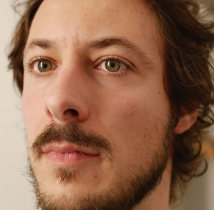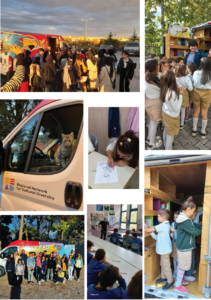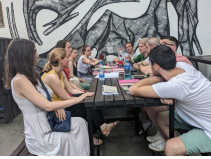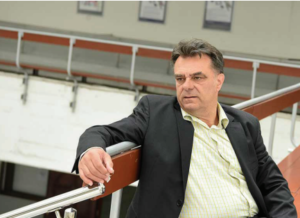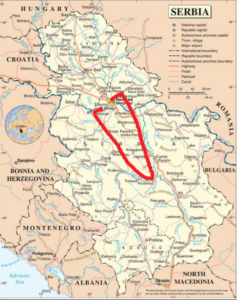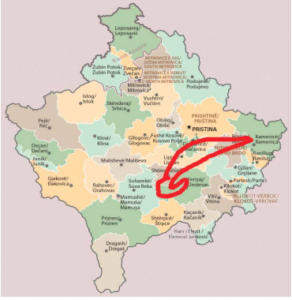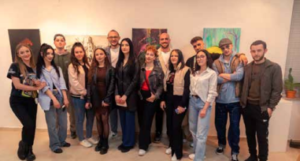Alessio Mazzaro’s project Edinost was selected in the 2018 Courageous Citizens grant call Courageous Citizens.
What was your idea about?
I wanted to extend to a European level a community based publication I was running in the city of Trieste (Italy) with its different communities. A journal for European citizens and labour migrants written by social artists, curators, migrants, activists, antifa members and academics. Through interviews to artists and migrants, and commission contents to artists and academics, the European Edinost acts as a workshop where “writers” and migrants can voice their story and different points of view, Labour migrants can identify themselves in similar experiences feeling part of transient European community and European citizens can find tools to counter fascisms and be part of the construction of the path for an EU citizenship. The European Edinost is a free journal and laboratory in continuous redefinition where artists, academics and citizens can create collectively a framework for a new antifascism. But also a space where cultural and economic migrants can expose acceptance problems creating a missing narrative that will give more humanity to the ones about migration proposed by populism. It will make us understand how others feel treated.
I applied with a “program” composed of four issue about four defined topics, but this has changed upon developing, I mean the topics changed. For example, for the second issue we made an open call for academic scholar to write article about when memory is used to prompt discrimination, but in the meantime our readers/audience made me understand they wanted something written outside academy. I also realize we had the need to talk first about another topic
How did your participation in the incubator workshop help you?
The workshop and the exchange with the other participants, helped me to define better my audience what I can give them, so it helped me making my project more focused. At the beginning I had too many key points I wanted to accomplish, but I had to realize what I could do in one year. In fact, I understood I had to start downscaling the project and instead of realizing a whole program of four issue of the journal, to start with two and then feel how to calibrate the project based on audience response and needs.
Of course you have to deal with setbacks in the start up, could you share a difficulty you had to deal with?
I had different “difficulties”. To deliver the level of deepness I wanted in the project I had to spend a first long period to dive further in its topics. In doing so I started to take contact with members of the antifa movements in different counties and here came out the first difficulty: to get trust and to find a way to dialogue. When I reached out people by email, sometimes they believe I was police so they were not keen to reply or dialogue. On the other side, at the beginning of my research, I was researching no-violent way to fight fascism, but this was not always well received. I was interested in how to prevent people to choose fascism again, but I realized what we call Antifa, was not interested in this at all, neither they believe much in education. I was concerned with the future they were interested in stopping now (physically) the far right people.
I “overcame” this problem in a “nice way”, this attempt of a dialogue became one of the main topic of the first issue of the European Edinost, in the shape of a months long dialogue between me and an antifa member in US.
As if to fight the new far rights outbursts we need something (new) more than how the antifa was acting, and the journal start focusing in this as well.
I had other similar problems, but I always use them as a way to understand how to shape the project discussing with the other people that contribute to it. Problems became a source of improving and understanding, starting from the awareness that I could not give a solution, a recipe of action to undertake to solve the problem that were object of the European Edinost. A solution could only be constructed over time through dialogue and bringing together different realities, and so has to act the journal.
On the personal and organization level I believe a difficulty I encountered was to work with the right assistants. For some months I had two students from Italian and Belgian university assisting me in the production and communication of the first issue, but it did not work out too well. I supposed because even if they were interested in the project they were helping for some extra money and I could not ask them the same commitment I had.
But there are also moments of glory and surprise, could you describe two of those too?
I remember two moment of glory and surprise, first when the Italian Cultural Institute of Montreal and the University of Montreal invited me to give a lecture about the project this February. The second was to see how the project was affecting people. We made different “small” presentations that really activate young people in discussion the subjects of the journal. And I realize that even if the project is tackling global issue I had then to act on a local sphere, presenting it in different context and keep talking with the audience after the presentation, because it’s that dialogue, that need for discussing problems, one of the goal of the project.
It was to see that the young people that migrated to look for a job in Europe and that in this “practice” change more than one countries, feel represented by the journal and “proud” someone was giving them the possibility to voice their experience. You know, in the first issue just one page of the journal was dedicated to this, but I feel like is the one that helped more because it’s trying to picture the transient identity a lot of people in Europe are living. Also for this reason the focus of the second issue will be “cohabitation in Europe”.
You are soon running a second workshop in your project, at the Max Planck Institute for Ethnic and Religious Diversity in Germany, how did this cooperation come to life? What do you hope to achieve this week?
During this workshop I am going to co-create with the participants the second issue of the journal. It’s going to sum up all the work done, also in the sense that for me, all the reading, the previous presentations of the first issue and the feedback helped me to improve the project and to shape it in the way the second issue will be.
I was feeling how the readers was asking a journal made by the people “from its base”, so a co-writing workshop with students, migrants, refugees and academics seemed the right direction.
The first connection between me and the Empires of Memory research group at the Max Planck Institute for Ethnic and religious diversity came out from twitter in 2017. I was posting about the Edinost and noticed that one of the follower of all my tweet was the sociologist researcher Giulia Carabelli, so I reached out and after a first Skype meeting we decided to co-create a number of the journal. Since then her research group has been following the project and Giulia giving me precious advice and contacts. She was the one that proposed me to go to Gottingen to do first a presentation of the European Edinost. Then, in the moment we where discussing this possibility the University of Gottingen opened a research space interested in understanding Gottigen as a post-migrant city -this was connected to the opening of refugees camps in town- so I propose her to realize a workshop in the research space. This was the beginning.
So after a beginning, what is in the future?
This a project made of connection, connecting people, and this create every time new possibilities. So I am gonna keep trust this way, and I am sure we’ll have a new telephone call or email talking about a future direction soon. Furthermore, it’s not finished yet. I am looking forward the workshop and what it will bring to the project.
From the European Cultural Foundation

